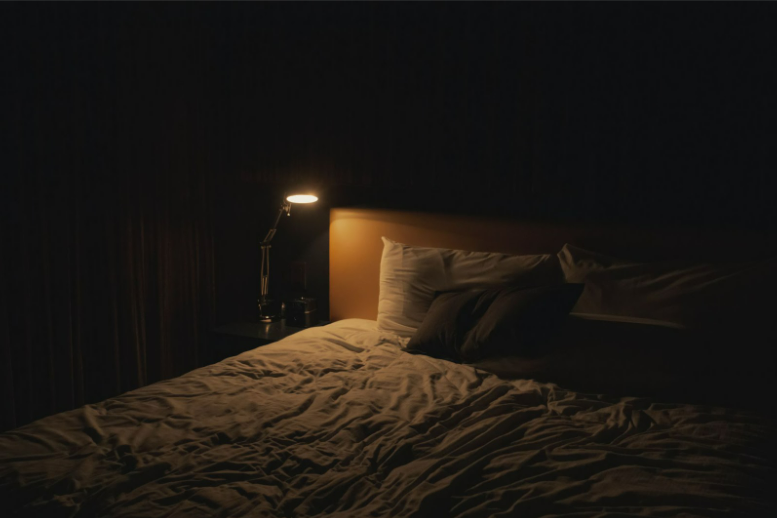Do you often find yourself struggling to get through the day? Are you having sleep problems? Feeling exhausted and run down? Then, you may need to change your sleep schedule. Millions of people around the world are now using biphasic sleep, a sleep pattern that has been shown to have many benefits. While it isn't necessarily right for everyone, biphasic sleep benefits are worth exploring if it ends up being a great fit for your life and schedule.
Today, we'll discuss what biphasic sleep is, the difference between biphasic and polyphasic sleep, the best biphasic sleep schedule for you, and more. Let's begin.
What is Biphasic Sleep?
Biphasic sleep is a sleep pattern that consists of two distinct periods of sleep. Most people who practice biphasic sleep will have a main period of sleep at night, followed by a shorter period of sleep during the day.
It involves splitting your night's sleep into two phases, with a core period of deep sleep in the middle. The first phase is known as the "first sleep," and the second phase is called the "second sleep."
Biphasic sleep is different from monophasic sleep, which is the traditional way that most people sleep (and still do). Monophasic sleepers have one long block of nighttime sleep and don't nap during the day.
It's also different from polyphasic sleep, which we'll discuss next.
Biphasic vs. Polyphasic Sleep: What's the Difference?
Polyphasic sleep refers to any sleep pattern that consists of more than two sleep periods. There are many different polyphasic sleep schedules, but the most well-known is the "Everyman" schedule.
The Everyman schedule consists of a main, three-hour block of nighttime sleep followed by napping for 20 minutes, 3-times throughout the day. This adds up to four hours of total sleep per day.
While biphasic and polyphasic sleep both involve sleeping in multiple phases, there is one key difference: biphasic sleepers always have a long period of deep, restful sleep at night, while polyphasic sleepers do not.
This means biphasic sleep is generally considered to be more natural and sustainable in the long term than polyphasic sleep.
Here are a few more of the key differences between biphasic and polyphasic sleep schedules:
- Biphasic sleepers have two distinct periods of sleep, usually one at night and one during the day.
- Polyphasic sleepers have multiple periods of sleep throughout the day and night.
- Most people are monophasic sleepers, meaning they have one long block of nighttime sleep.
So, biphasic sleep is a type of polyphasic sleep (because it has multiple periods of sleep), but polyphasic sleep can also refer to any type of sleeping pattern that isn't monophasic.
This leads us to the next question many people have about biphasic sleep: is it good or bad? The answer isn't simple, but let's explore it next.
Is Biphasic Sleep Good or Bad?
To answer this question, we need to consider biphasic sleep in the context of our overall needs. Most people require around eight hours of sleep per night, although some need more and some need less.
Biphasic sleep typically involves sleeping for around six hours during the night and then taking a 20-30 minute nap during the day. This can leave you feeling well-rested and refreshed, but it's not ideal if you're trying to get eight hours of solid, uninterrupted sleep.
Some sleep experts also believe that biphasic sleep can lead to poorer sleep quality overall, as you're not getting the deep, restful sleep that you need.
Now, is biphasic sleep good or bad? It depends on your individual sleep needs and preferences. If you're someone who has great cognitive function and feels well-rested with six hours of sleep plus a nap during the day, then biphasic sleep might be a good option for you. However, if you need eight hours of uninterrupted sleep per night, biphasic sleep probably isn't the best option.
So biphasic sleep may not be ideal if you're looking to get the recommended amount of nightly shut-eye, but it does have its benefits. Let's take a look at those next.
Biphasic Sleep Benefits
There are a few biphasic sleep benefits that make it worth considering if you have trouble sleeping through the night or have a sleep disorder.
- First, biphasic can help you feel more rested during the day. This is because you're getting two periods of deep, restful sleep instead of one. And since biphasic sleepers typically wake up feeling refreshed and well-rested, they're less likely to experience daytime fatigue.
- Second, biphasic sleep can improve your productivity. Because you're able to get more deep sleep, you'll be better rested and able to focus during the day. Rest and focus go hand in hand for many people. This means you could be more productive at work or school and can get more done in less time.
- Some studies show biphasic sleep can also improve cognitive performance in some people. For example, one study found that biphasic sleepers performed better on tests of memory and attention than those who slept in a “normal” cycle.
- Additionally, some studies also show some of the biphasic sleep benefits include improved cardiovascular health. One study found that biphasic sleepers had lower levels of the stress hormone cortisol, which is linked to higher blood pressure and heart disease.
- Finally, biphasic sleep can help you improve your mood. Because you're getting more deep sleep, you'll be less likely to experience mood swings and irritability. This means you'll be in a better mood overall and will be able to enjoy your day more.
So if you're looking for a way to get better sleep, biphasic sleep might be worth considering. Just remember that it's not for everyone, and it may take some time to adjust to the new sleep schedule. But if you stick with it, you may find that biphasic sleep is the key to a better night's rest.
Best Biphasic Sleep Schedule
If you decide that biphasic sleep is right for you, the next step is to figure out the best biphasic sleep schedule to include your “short naps.”. There are a few different options to choose from, but the most popular biphasic schedule is the "Everyman" method, which we discussed above. Because it involves multiple phases, it also falls under the polyphasic sleep category.
To expand on that, with the Everyman method, you sleep for six hours at night and then take a 20-30 minute nap during the day. This nap can be taken at any time, although many people prefer to take it in the late afternoon or early evening.
Other polyphasic sleep schedules include the "Uberman" method, which involves sleeping for six hours at night and taking multiple 20-minute naps throughout the day. This can be difficult to stick to, as it requires napping at regular intervals throughout the day.
Finally, there's also the "Dymaxion" method, which is similar to the Uberman method but with longer naps. With the Dymaxion method, you sleep for four hours at night and then take multiple 30-minute naps throughout the day.
Choosing the best biphasic or polyphasic sleep schedule depends on your lifestyle and preferences. If you have a lot of free time during the day, you might prefer the Uberman or Dymaxion methods. However, if you have a busy lifestyle, the Everyman method might be more realistic for you.
Other Strategies for a Better Night's Sleep
Biphasic sleep benefits might be enough to convince you this is the right option for you. But it's also worth considering some other strategies for better sleep. Many of these can be used in conjunction with biphasic sleep, while others are worth giving a try with your current sleep habits.
Here are a few more ideas to help you get a better night's sleep:
- Establish a regular sleep schedule and stick to it as much as possible
- Keep your bedroom cool, dark, and quiet
- Avoid caffeine and alcohol before bedtime
- Limit screen time before bed (this one can be tough!)
- Get up and move around during the day. Movement helps promote better sleep at night.
- Try to relax and wind down for 30 minutes before bedtime. This could mean reading, taking a bath, or listening to calming music
- Avoid big meals or spicy foods close to bedtime
- Try meditation before sleep (There are tons of great apps out there to help with this, including Calm)
- Consider Xen by Neuvana headphones to promote your overall well-being, better rest, and a brighter mood. They stimulate the vagus nerve through the ear in a non-invasive and accessible way that has been shown to come with many benefits for many users.
- Talk to your doctor if you're having trouble sleeping. They can help you identify underlying causes or issues and provide additional resources.
The Bottom Line
To recap, biphasic sleep is a sleep pattern that involves sleeping for six hours at night and then taking a 20-30 minute nap during the day. This sleep pattern is also known as "siesta sleep" and is common in Mediterranean countries.
There are many biphasic sleep benefits, including:
- Improved alertness and concentration during the day
- Increased productivity
- Improved mood and well-being
- Decreased stress levels
- Improved cardiovascular health
If you're looking to improve your sleep quality and get a better night's rest, biphasic sleep may be right for you. Give it a try and see how you feel.





